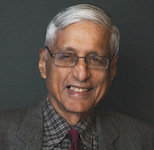Rahul Gandhi Fumbles With Savarkar Remark But Yatra Is Needed
There is no doubt or confusion on the point. More than a hundred years ago, Savarkar did send several letters to the British asking for mercy. On this the historical record is clear and unambiguous. On the other hand, Savarkar's suffering and daring for Indian independence are also facts of history that should be recognized, including by those disagreeing with some of his core ideas.
In any case, why are we debating a hundred-year-old correspondence? What's happening before our eyes in the India of 2022 is infinitely more pertinent. Will India remain a democracy with equal rights for all, as assured by the Constitution? Or will the drive to divide India's population by religion and impose a majoritarian hierarchy succeed?
Any discussion of this live issue must take into account Savarkar's well-known and emphatic view that since Muslims and Christians subscribe to faiths originating outside India, they cannot be accepted as loyal Indians. It is this view of Savarkar that becomes a weapon in the project to humiliate India's Muslims and Christians. It also becomes a legitimate issue for debate.
Also relevant to current discussions is Savarkar's insistence, first articulated in 1937 if not earlier (while the Brits were ruling an undivided India), that the country's Hindus and Muslims constitute two distinct and different nations. Influential Muslims in that undivided India expressed similar views, and in 1940 the Muslim League, led by Jinnah, asked for the separation of Muslim-majority areas from India.
After the 1947 Partition, even as Pakistan moved in the direction of an Islamic state, the leaders and people of the India that remained rejected the two-nation theory. Under Ambedkar's leadership, a Constitution of equal rights was produced. Despite the country's overwhelming Hindu majority, it became possible for a Christian girl, or a Buddhist, Sikh, Jewish or Muslim girl, to dream of becoming India's President or Prime Minister. In practice, too, free India was led after Independence not merely by remarkable Hindu figures but also by brilliant Muslims, Sikhs, Christians, Parsis and Jews. In Pakistan too, amazing people like Abdul Ghaffar Khan kept alive the notion of equality and of partnership across religious boundaries.
Although majoritarian hierarchy has staged a strong comeback in India and elsewhere, the world of 2022 is very different from the world that shaped the thinking of people like Savarkar. No one in today's UK has been heard arguing that since Rishi Sunak subscribes to a faith that originated outside the British Isles, he cannot be a loyal Brit. Sunak is no startling exception. Other Hindus, Sikhs, Muslims, and Christians from India have been elected to crucial positions in the U.S., Canada, Britain, Ireland, Portugal, Australia and elsewhere, countries far from the land where their faith originated. We can be sure that a Savarkar growing up in today's world would reconsider his theory of loyalty.
It is noteworthy, too, that as Prime Minister Modi assumes the G-20 chairmanship, he underlines that across the world we are "One Earth, One Family, One Future." The words "One Family," are worth lingering with.
Nonetheless, majoritarian hierarchy attracts passionate followers in India (and elsewhere). Since many see Savarkar as an ideological parent of any Hindu Rashtra, it should not be surprising if champions or opponents of India as a Hindu state bring up his name. It is in this context that we should place the current controversy regarding Rahul Gandhi's remark during his Bharat Jodo Yatraabout Savarkar humbling himself before India's British rulers.
The remark was avoidable. Many in Maharashtra and elsewhere honour Savarkar's memory, including, crucially, Uddhav Thackeray, the Shiv Sena leader who, until the other day, was heading the Maharashtra government of which the Congress was a part.
Impolitic Rahul Gandhi's remark might have been, but perhaps it is impossible for one who says he wants to bring all Indians together on the basis of equality and mutual respect not to question the notion, associated with Savarkar, of majoritarian supremacy.
The political outcome of Rahul Gandhi's Bharat Jodo Yatra is hard to predict. But already the Yatra seems to have impacted the Indian mind in a significant way. Its inclusiveness (every sort of Indian seems to have joined the Yatra) offers a living and walking demonstration that all Indians, poor or rich, despised or honoured, are linked to one another and need one another. And the Yatraseems to be providing evidence that people who believe in everyone's dignity, who reject hierarchy and supremacy, who want to reach out to all their compatriots on India's good earth, will find comrades and fellow marchers.
Also underscored by the Yatra, however, is the troubling fact that physically coming together across religious divides has become rarer in our land in recent years. Covid was a new hurdle but not the only one. Even ardent champions of human rights do not mix regularly with people of another religion. One hopes that the Yatra will trigger other inclusive actions in locations across the land.
To return to Rahul Gandhi, it has to be acknowledged that until the Bharat Jodo Yatra, not many public figures were willing to mount a firm challenge to majoritarian hierarchy. Rahul Gandhi has shown his willingness to do so. He has also tested with apparent success his belief that the bulk of the Indian people want equality and mutual respect, not a high-and-low nation.
We may fault Rahul for a needless remark. But we should recognize his bold, arduous, and much-needed initiative.
